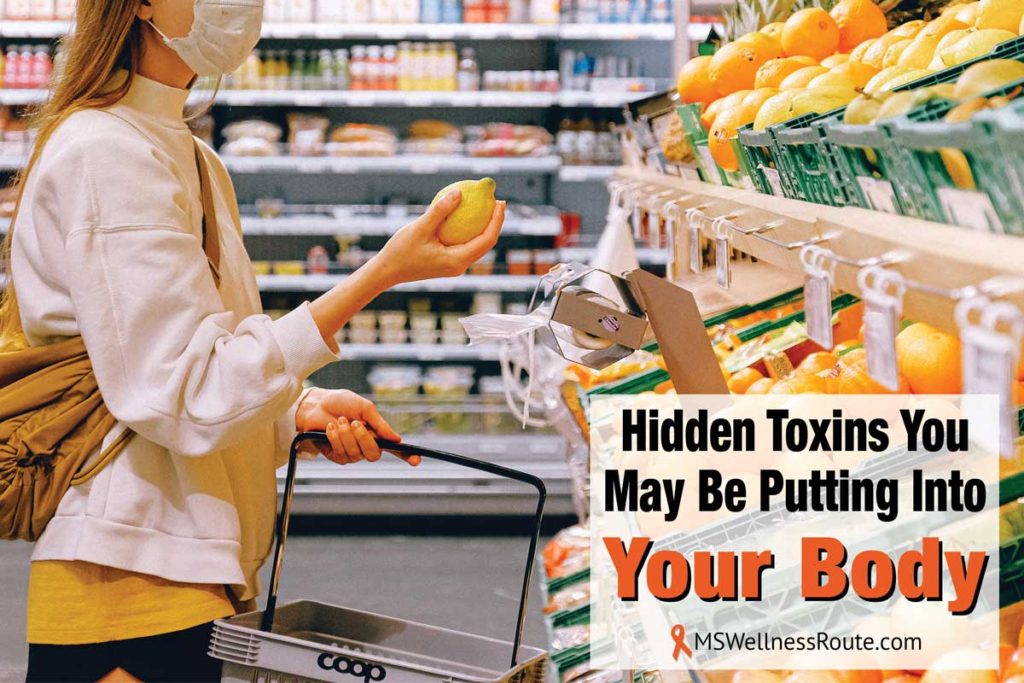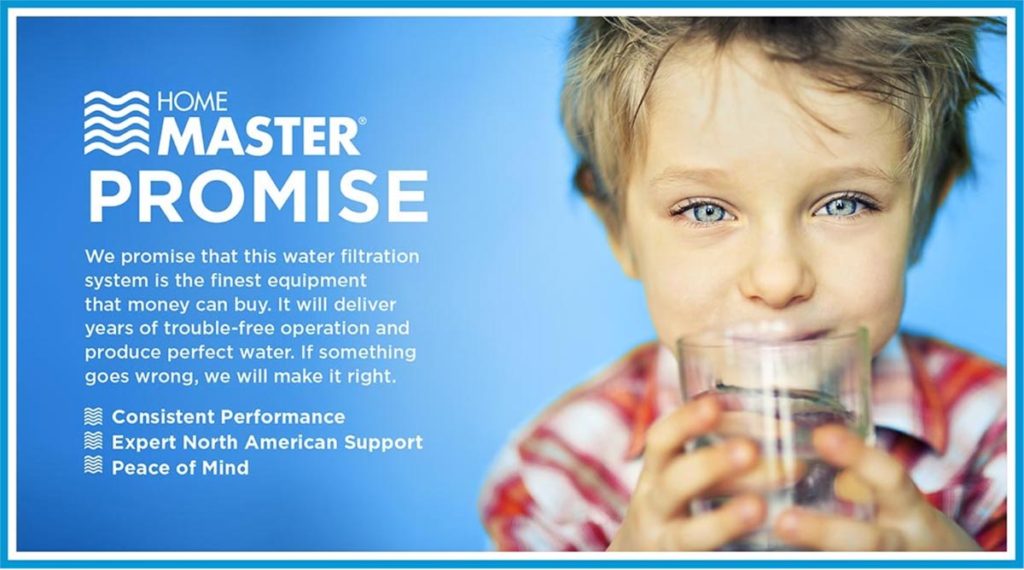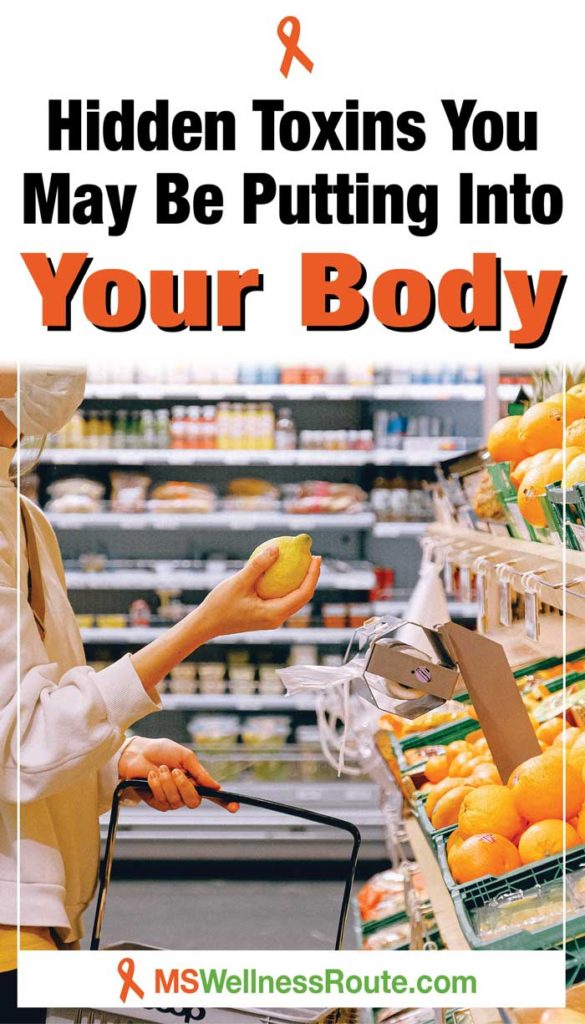Last Updated on November 18, 2023 by Cathy

Multiple sclerosis (MS) is an autoimmune neurological disease. It is also a chronic inflammatory disease. Chronic inflammation comes from many different sources. Depending on how you live and the hidden toxins you are exposed to.
For example, some people are more sensitive to mold exposure than others. This is due to the HLA-DR gene which affects one-quarter of the world population. Some say it’s about 40 to 50%.
If this person works in a moldy building they will be the first to feel the effects. They will also be the last to recover.
To find out if you have the HLA-DR gene read DNA Test For Multiple Sclerosis
The cause of MS includes genetic predisposition and environmental factors.
You can’t change your genes. But, you can change your gene expression by living a healthy lifestyle. However, genetics plays a small role, it is environmental factors that trigger the onset of MS.
Chronic inflammation prevents the body from repairing and overcoming the damage of toxins. Toxins include bacteria, chemicals, heavy metals, processed foods, and pollutants.
Toxins are in the air you breathe, the food you eat, and the water you drink. They are inside and outside your home, car, and place of work. It is impossible to escape from toxins.
Toxins found in your home include:
- Body care products
- Cosmetics
- Cleaning products
- Clothing
- Cookware
- Flooring
- Food containers
- Furniture
- Mattresses
- Paint
- Pesticides (bug killers)
- Shower curtains
You get the point… toxins are everywhere.
Different government agencies approved of these and said they are safe. However, many of the laws around chemicals are old and outdated. Manufacturers find loopholes resulting in a lack of ingredient disclosure and testing.
U.S. agencies used to protect consumers in their homes:
- Consumer Product Safety Commission (CPSC)
- Environmental Protection Agency (EPA)
- Food and Drug Administration (FDA)
Today, people spend an estimated 90% of their time indoors. Disabled people or people who work from home spend more time indoors. Indoor pollutants are often 2-5 times higher than outdoor pollutants.
Natural Toxins

Besides synthetic toxins (man-made) there are natural toxins such as:
- Algae
- Alkaloids, found in black pepper, coffee, nightshades, and potatoes
- Chaconine found in green potatoes
- Lectins, found in beans, legumes, potatoes, and whole grains
- Mycotoxins (organic compounds released by certain types of mold)
- Mushrooms, poisonous and non-poisonous
- Solanines, found in nightshades
These foods don’t affect everyone but having MS makes you more susceptible. First, start an anti-inflammatory diet. Then if you continue having problems consider one of these above as a culprit.
Quick Links To Information Above:
What Are Nightshades?
Are Nightshades Bad?
Are Mycotoxins Holding You Back From Healing?
How To Start An Anti-Inflammatory Diet
MS and Environmental Toxins
Environmental toxins influence both disease risk and progression. Studies linked alcohol, high coffee consumption, infections, smoking, and sun exposure to MS.
Sun exposure provides us with vitamin D and plays a vital role in MS. It not only triggers the onset of MS but also affects the progression of the disease. It is extremely important to get your vitamin D level checked as soon as possible.
To learn more about vitamin D read Multiple Sclerosis And Vitamin D
Researchers found people with MS have more bad bacteria in their gut than healthy people. This could be due to an overuse of antibiotics, poor diet, stress, and toxins such as pesticides.
Toxins and chronic inflammation lead to demyelination of the central nervous system.
Studies found exposure to chemicals, heavy metals, and organic solvents are contributing factors. Mercury causes oxidative stress and damage to DNA, mitochondria, and lipid membranes. Other heavy metals such as arsenic, copper, and lead are possible factors.
Lowering Your Toxic Overload
You can’t avoid all toxins but you can control what goes in your home. The best thing you can do is to lighten your toxic overload. Start with what you can control from getting into your system.
Four ways to keep your body as toxin-free as possible:
1. Diet
Avoid processed foods by eating an anti-inflammatory diet. Buy organic as much as possible. Yes, it can get expensive but you will avoid foods that cause poor gut health. Eat foods high in fiber and low in sugar (sugar feeds bacteria and infections such as candida.
Quick Links To Information Above:
What Can I Eat On An Anti-Inflammatory Diet?
What Is Candida Albicans?
If you can’t always afford organic produce choose organic only if it is on the Dirty Dozen list. For organic meats avoid the fat since that is where the toxins are.
Organic foods to include:
- Vegetables
- Fruit
- Herbs and spices
- Healthy fats
- Wild-caught fish
- Pasture-raised poultry*
- Grass-fed and finished meats
*It is best to avoid eggs while you are trying to heal. In the book The Wahls Protocol, Dr. Terry Wahls recommends people avoid eggs.
Quick Links To Information Above:
Medicinal Herbs And Spices For Your Health
Healthy Fats Improve Your Health
Farmers feed conventionally raised animals and fish grains and soy. They also give cows antibiotics and growth hormones to fatten them up. Plus, salmon has pink dye to match the color of wild salmon. (Conventionally raised salmon are grey.)
As the saying goes:
“You Are What You Eat“
2. Clean Your Air
To clean the air inside your home use a HEPA air filter. If you have issues with mold find an air filter that removes mycotoxins such as the AirDoctor. Add houseplants that help remove toxins such as:
- Aloe Vera
- Boston fern
- Broad Lady Palm
- Chinese Evergreen
- Chrysanthemum
- English Ivy
- Peace Lily
- Philodendron
- Pothos
- Spider Plant
3. Drink Filtered Water
City water contains chemicals and fluoride and well water you never know what is in it. You not only absorb chemicals from drinking water you also absorb them through your skin.
It is best to use a water filter and if possible choose a whole-house water filtration system.
Dr. Terry Wahls, the author of The Wahls Protocol, recommends a Reverse Osmosis system. A reverse osmosis water filtration system can reduce up to 99% of water contaminants.

4. Use Clean Body Care Products
Everything you put on your body gets absorbed. That is why is important to start using products that don’t have toxins. You can either make your own or buy them. The Environmental Working Group is a great resource for finding clean products.
5. Use “Green” Cleaning Products
Store-bought household cleaners are extremely toxic. Even walking down the household cleaners aisle at the grocery store the smell is overwhelming. Simple ingredients you probably already have in your pantry are just as effective.
Clean household cleaners and disinfectants:
- Baking soda
- Castile soap
- Hydrogen peroxide
- Essential oils to destroy bacteria such as lemon, peppermint, and tea tree oil
- Lemons
- White vinegar
Hidden Toxins
Exposure to household toxins is very common but it doesn’t have to be in your home. Start by eating and living a healthier lifestyle. Become a smart shopper and know your choices.

Free Wellness Library!
Subscribe for free and I’ll send you the password to my secret library filled with many printables for your wellness journey.

Photo by Anna Shvets and Monique Laats from Pexels.
Resources:





